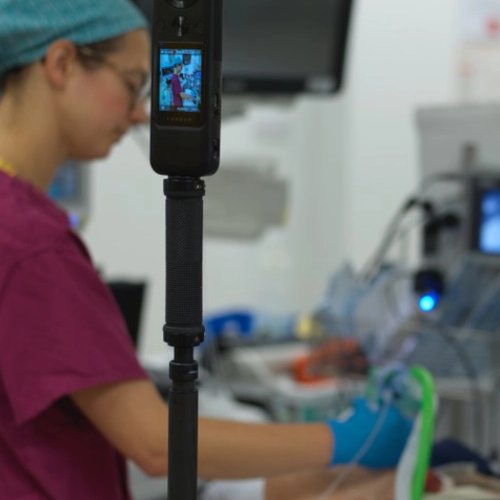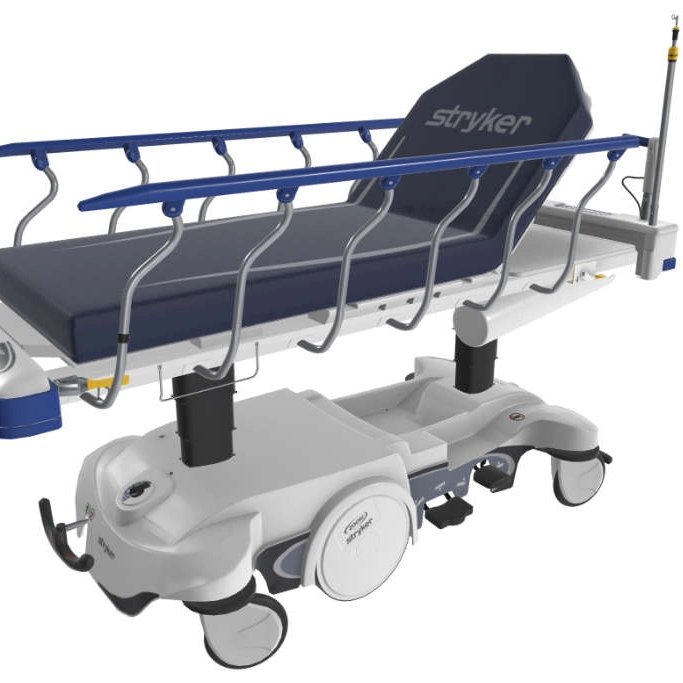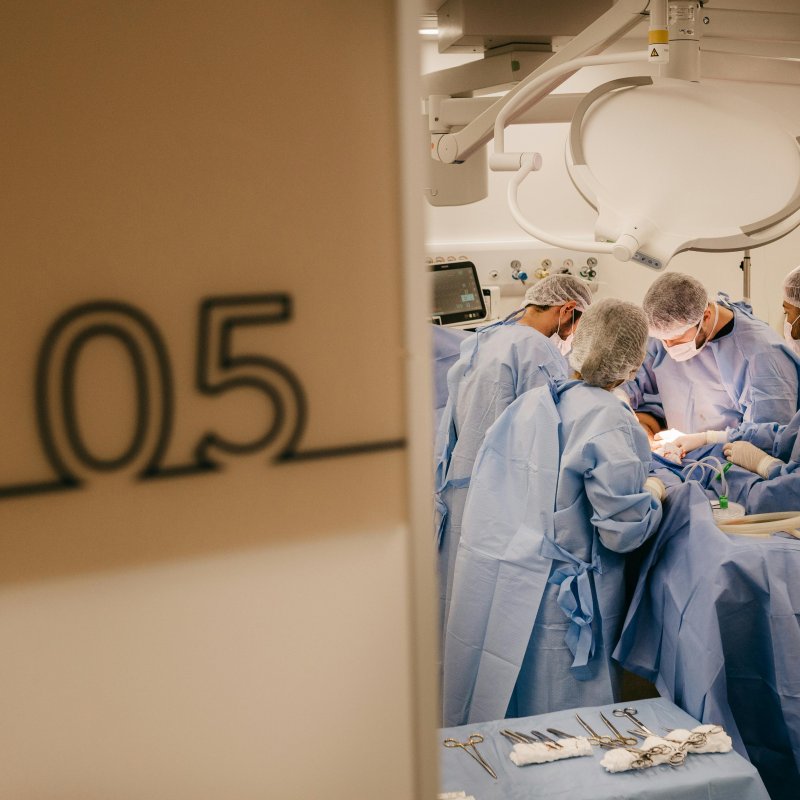Contact Us
+44 20 32897141 / 1 Pickle Mews, London, SW9 0FJ
VR in Medical Training: What You Need to Know
Published
Feb 15, 2024
Tags
Type ‘medical VR training’ into Google and almost 53 million results are returned in less than half a second. Interest in applying virtual reality (VR) within medical and healthcare training is surging. With stats like surgical performance improving by 230% when medical VR platforms are used to train medical students (compared to traditional methods), you don’t need to have the brain of a surgeon to understand why.
How is VR used in medical training?
Medical VR training uses technology to simulate an environment for a person to learn in. For instance, an operating theatre for a knee replacement. The virtual reality is complete with all the essentials, from the anesthetised patient and surgical staff to the metallic instrument tray, bright lights, and beeping machines. You’re immersed in the theatre that looks and feels just as it would if you were literally stood in – only short of the pungent antiseptic smell!
What happens during a medical VR training experience?
Simulations come in a range of formats that can be tailored to the type of experience best suited to a particular scenario or organisation. So, you could be experiencing the knee surgery as it happened through real-world recordings. The user would be immersed in a 360° film of the actual real-world operation! To make it as lifelike as possible, the user has total control over their view – one minute, they could be focussing on the initial incision – the next, 'turning' to check the readings on the ECG monitor.
Or, the user could be immersed in a completely virtual training setting. In this case, the real-life theatre setting would be transformed into a 3D animated scene. The operation is simulated to mirror the real-world surgery, but the user is able to interact with what’s in front of them to get hands-on surgical skills training. (An interaction could be with an instrument, medical device, patient – the list goes on).
Why does UK healthcare need virtual reality training?
Ask anyone on the UK’s medical scene about what the sector’s like to succeed in (or even get into) and ‘competitive’ is bound to come up. In fact, there’s been a 29% increase in the number of applicants for Medicine in the last five years, but you’ll only find medical schools at just over a third (35%) of UK universities.
You could say that training is the Achilles’ heel of the sector. Learning and refining skills lies at the heart of medical prowess, whether you’re a paediatric nurse honing a new and niche skill or a junior doctor starting your first year in practice. It’s not that we lack people wanting to study medicine or progress their medical careers. It’s that we don’t have enough people available to train them to do so. Medical VR, welcome to the fold.
What are the benefits of VR in medical training?
No one’s here to argue that a simulation of a knee replacement should replace training in the ‘real’ and physical sense. But it does enhance it, by broadening access to it. Time to train is sparse. Resources to train (i.e. the trainers) are growingly few and far between. Cost to train is tight (what’s new?). Virtual reality is the literal solution that overcomes these age-old pains of traditional medical training. It’s...
Time efficient
Medical VR training can be accessed from anywhere, at any time, through web browsers and apps on a range of devices. Users can engage with training on their smartphones at a time that suits them. Not to mention pausing, rewinding, and revisiting certain segments of films on their tablet, actions that you can rarely do in the same real-life scenario!
Resource effective
It's the same for the person delivering the training. The beauty of medical VR is that the user gets all the specialist knowledge and technical guidance from the acclaimed medic, without demanding their time. (Or rota, room, or resource availability).
VR is a real-world replication of a process, be it how to give responsive first aid for epistaxis or what the airborne medical procedures of an emergency air ambulance look and feel like. Users are immersed into a full simulation of a particular scenario and trained on what they need to know and how they need to act throughout.
Budget-friendly
Sounds expensive? Well, our own medical VR training is free to all NHS users, ending the conversation around cost as soon as it starts! Both NHS institutions and individual NHS users can absorb themselves in the broad range of training films and simulations on the ExR Education platform. Affordability has long been the barrier to democratising medical VR – we’re here to make sure accessibility is the answer.
A modern approach to mandatory requirements
We’ve all had an email land in our inbox with a subject line like 'Outstanding mandatory training: Manual handling’. And let’s be honest – we’ve probably all sat there facing the computer screen click, click, clicking through page after page of word-heavy training until we’ve reached the mandatory assessment at the end. Can you honestly say you give the ‘planning lifting a load’ section 100% of your attention?
Despite transferring to digital means and growing in interactivity, training feels dull and uninspiring more often than not. Whether it’s manual handling or COSHH specific to your surgical specialism, mandatory training hasn't been given a makeover that fits the modern age. That is, until VR revived its heartbeat.
What's the impact of VR on medical training?
We’d bet that you’d take far more of a vested interest in the impact that incorrectly lowering a load has on your back if you were experiencing it (rather than reading it!). When a person is engaged with what they’re seeing, they’re getting something from it – and they’re more likely to be invested in completing it.
In healthcare settings, there are lots of procedures that nurses, paramedics, doctors are supposed to train on. But they don’t always get to witness a complex paediatric airway emergency because they are dealing with another patient, on call at another setting, taking annual leave, or their hospital doesn’t offer that service (and so on).
Here’s the big opportunity for medical VR training. We can expose medics and students to both common and niche scenarios without the complexities of real-life barriers. Healthcare and medical professionals can witness procedures they otherwise might have missed. They can refine technical skills they otherwise might not have had the opportunity to do. Interest, confidence, and competence soar – remember that 230% performance increase?
Medics may not be in the room, but in that VR moment, they are. When the real-life, in the room moment comes around, they’re more prepared than they would have been otherwise.
Feeling inspired to take learning at your trust to the next level? Get in touch to find out how we can support your VR training model.
Most recent posts
Like what you read?
Please get in touch with us.



